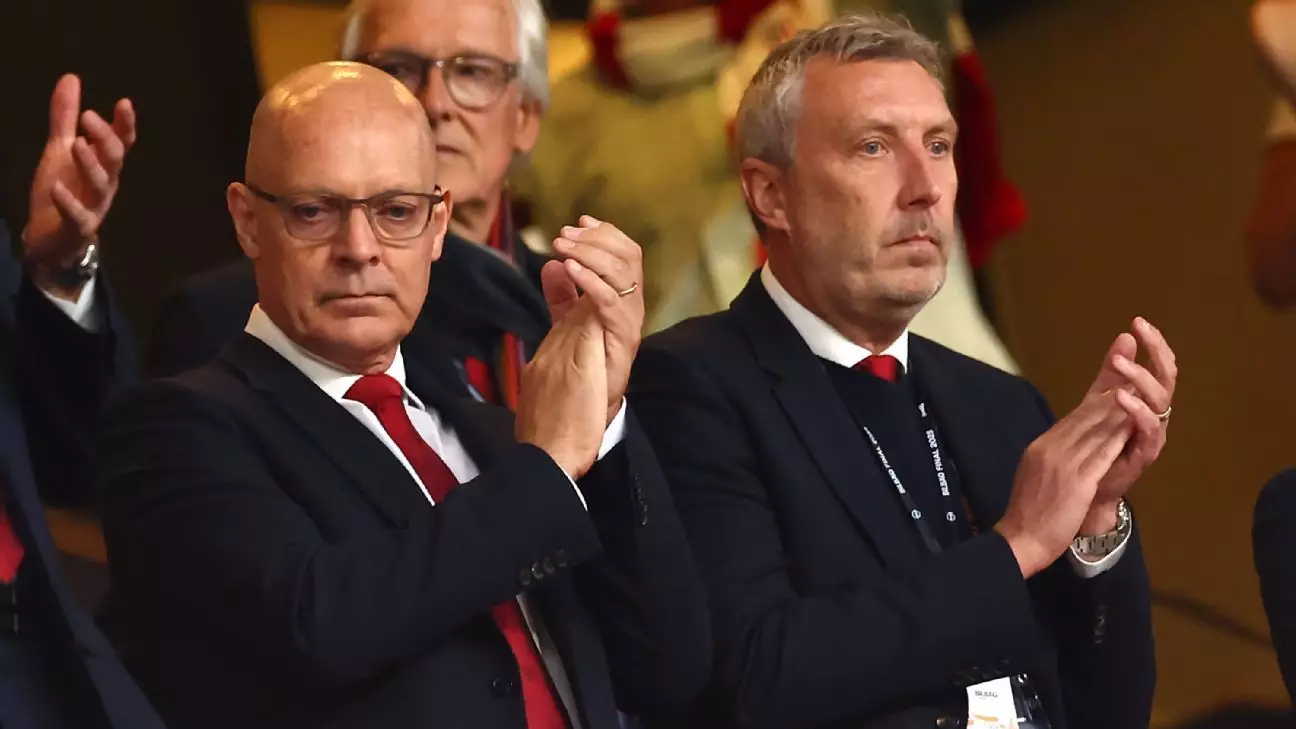In the constantly shifting landscape of modern football, few clubs epitomize volatility quite like Manchester United. The recent adjustments in the club’s operational management reveal a profound pivot, particularly with Dave Brailsford’s diminishing role. Known for his tactical acumen in elevating British cycling to Olympic heights, Brailsford was anticipated to spearhead a renaissance at United following billionaire Jim Ratcliffe’s noteworthy minority investment last year. However, the stark reality is that their aspirations seem to have encountered turbulence.
United’s catastrophic finish last season—landing in 15th place and accumulating the lowest points total ever seen in the Premier League—has illustrated the sobering challenges that accompany high-profile management changes. The alarming trend of underperformance has cast a long shadow over the club, prompting the need for a reevaluation of strategic leadership—and the reductions in Brailsford’s influence reflect this urgent necessity.
The Quest for a New Identity
The footballing landscape is merciless, and Manchester United’s quest for a new identity has been complicated by a series of high-profile comings and goings. The transition in management has been frenetic. Erik ten Hag’s dismissal after a mere three-month extension starkly underscores the club’s inability to cultivate stability amidst their transformation process. This lack of consistency at the coaching level warns of deeper issues ingrained within the club’s structural framework.
Moreover, the exit of Dan Ashworth, who departed less than half a year into his role following a protracted negotiation, reflects the tough task of attracting and retaining top talent amid a climate of uncertainty. Each departure signifies a gap—a hole created in the club’s aspirations and vision. The arrival of CEOs and directors who have previously shown promise with rival clubs only emphasizes the irony of United’s current plight. As they attempt to reinforce their leadership structure, the question remains: can they effectively unite these new connections into a coherent and forward-moving strategy?
Should the Focus Be Refocused?
The overarching concern is whether the current strategy under Ratcliffe and his executive team can genuinely shift the club’s fortunes. Key figures like Omar Berrada, recruited from Manchester City, and the appointed technical director Jason Wilcox, offer the promise of seasoned expertise, yet the club seems plagued by systemic issues that extend beyond mere personnel changes.
What’s needed now is not just a reshuffle of roles but a deep-rooted reassessment of what Manchester United football truly stands for in today’s fiercely competitive era. The brand has historically thrived on discipline, unity, and an unwavering commitment to excellence—elements that appear to be waning in the current reformation efforts. Striking the right balance between a visionary strategy and the hard reality of results on the field is crucial.
From Brailsford’s strategic withdrawal to the ongoing reshaping of the management, Manchester United finds itself at a critical juncture. The ability to galvanize talent, restore competitive spirit, and establish a united front both on and off the pitch will dictate whether this venerable institution can reclaim its former glory. The steps taken now carry a monumental weight, and the club must navigate this transformative journey with acute attention to the lessons of the past.

